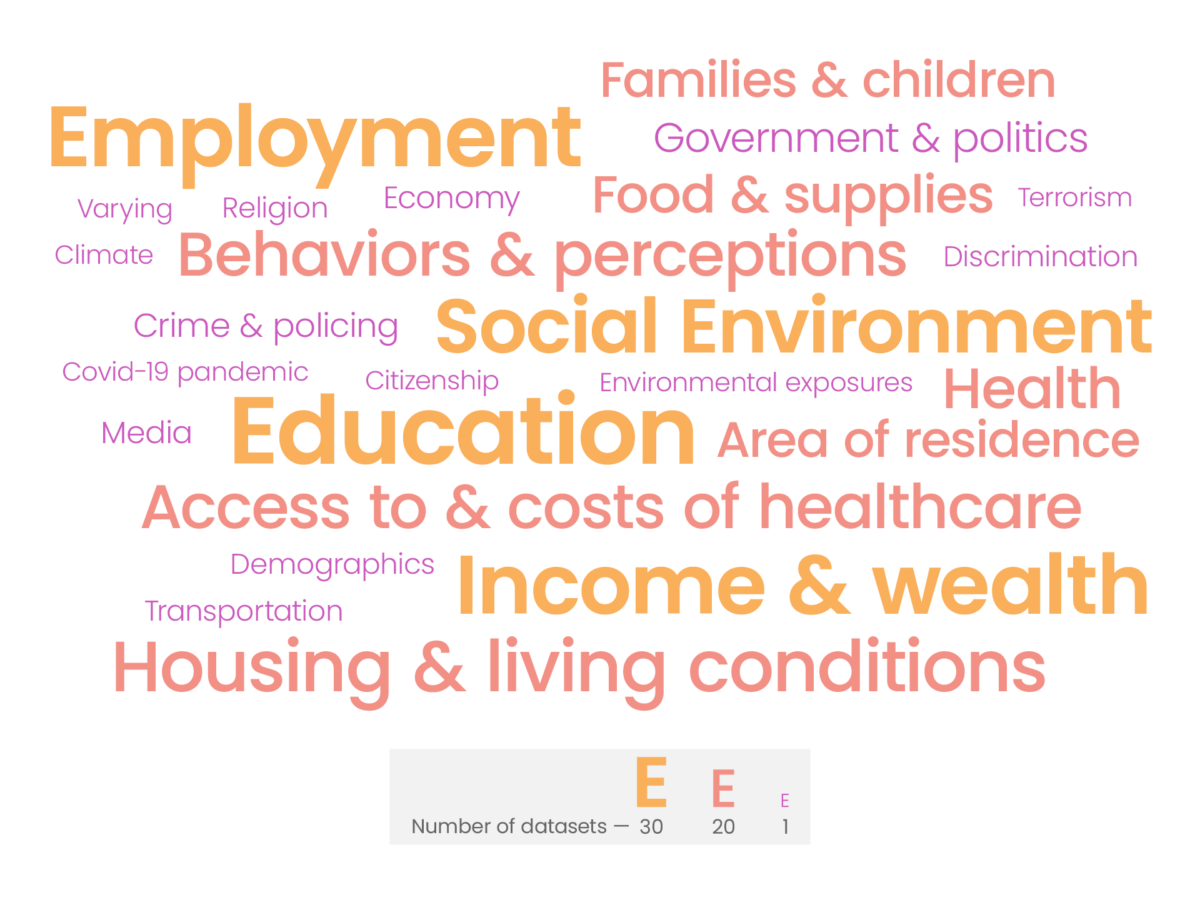Data Highlights
72 datasets worldwide
Data Highlights of the Global Determinants of Health Datasets
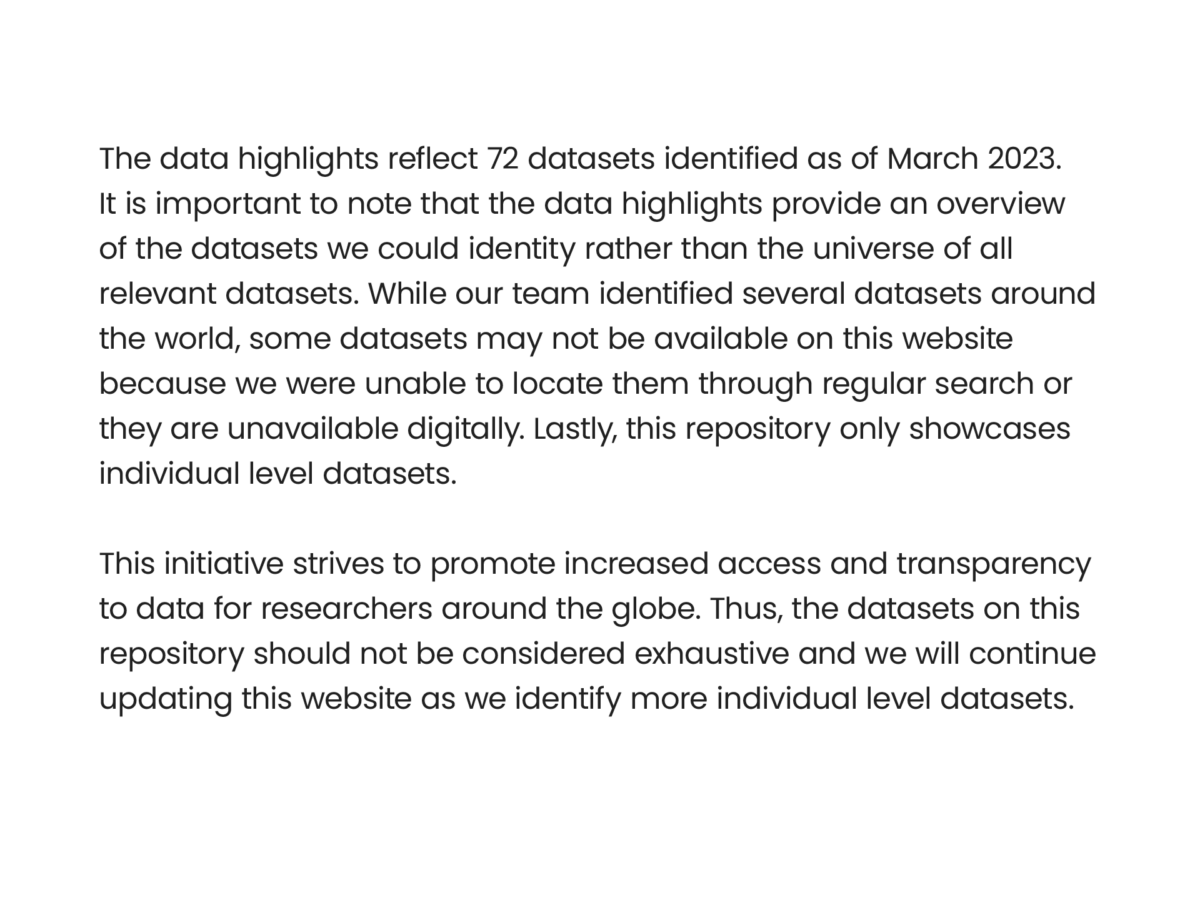
The number of datasets in the United States is almost equal to that of the African continent
The difference in the number of datasets reflects the inequities around data availability on the determinants of health. More investment is needed to develop and share data globally to better understand the determinants of health landscape on a granular level.
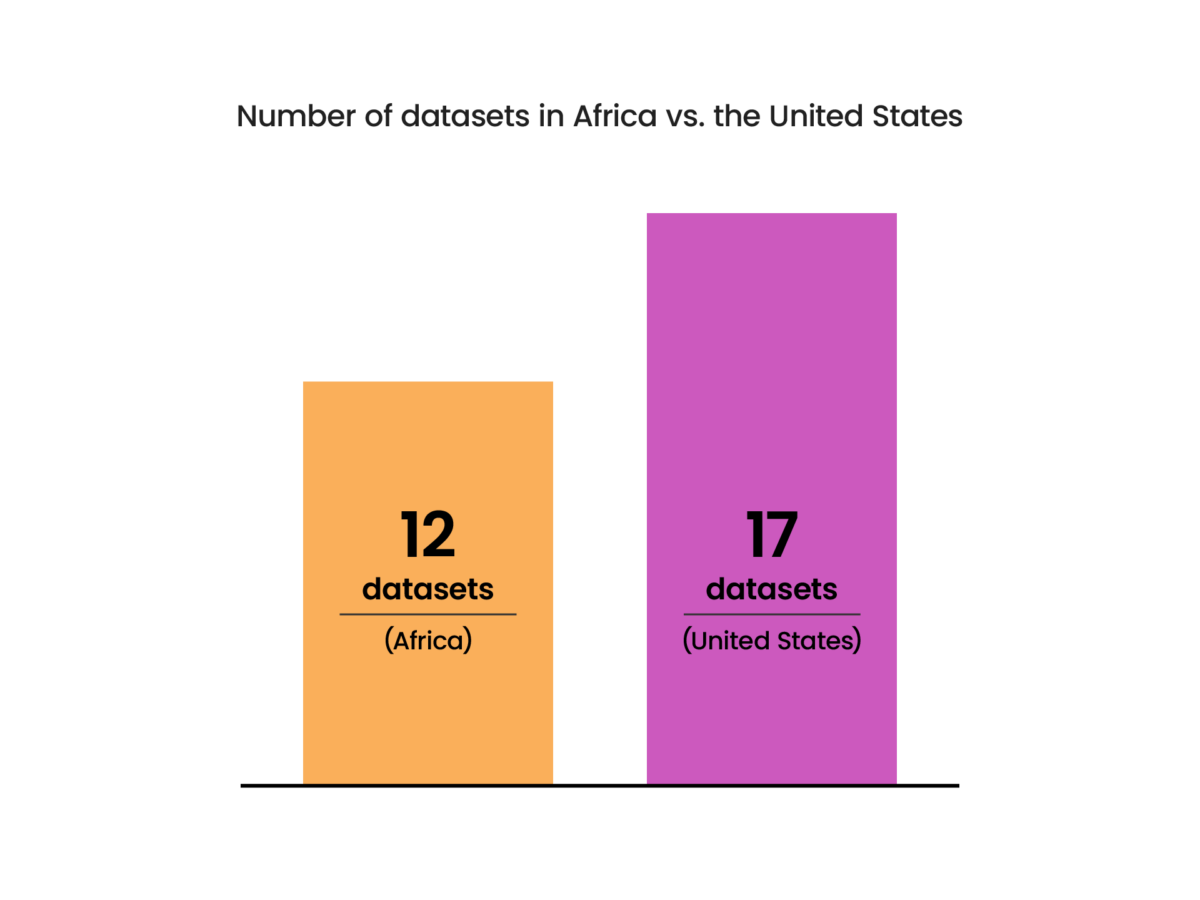
Nearly 80% of survey organizations are not directly affiliated with the surveyed country
Most surveys are performed by organizations that do not have a direct affiliation with the surveyed country. This could mean that vital information related to the social determinants in these countries’ populations may not have local contextualization.
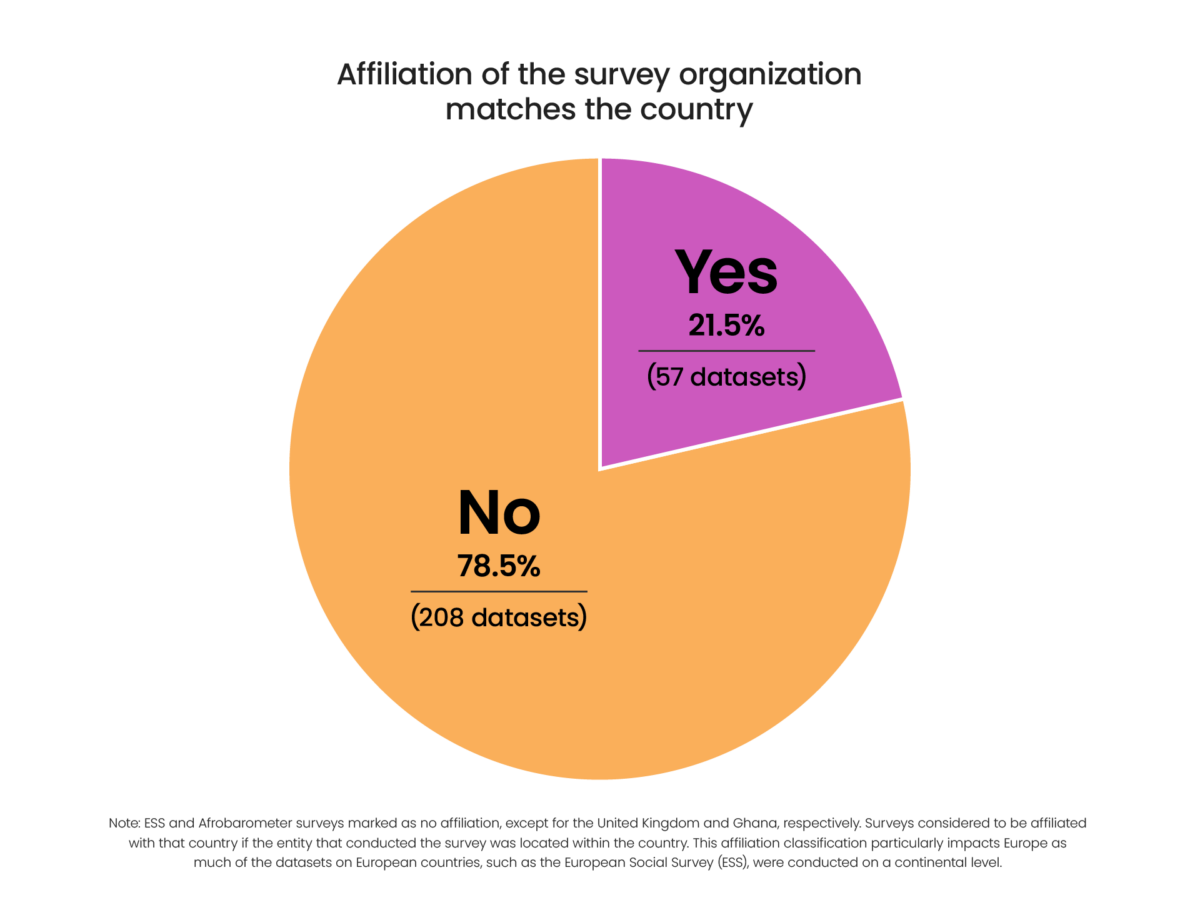
Africans are 61% more likely to be surveyed by an unaffiliated group than the rest of the global population
In Africa (98%), Asia (77%), and South America (69%) populations are more likely to be surveyed by an unaffiliated group. This can result in biased questions, results analysis and interpretation, as well as discrimination.
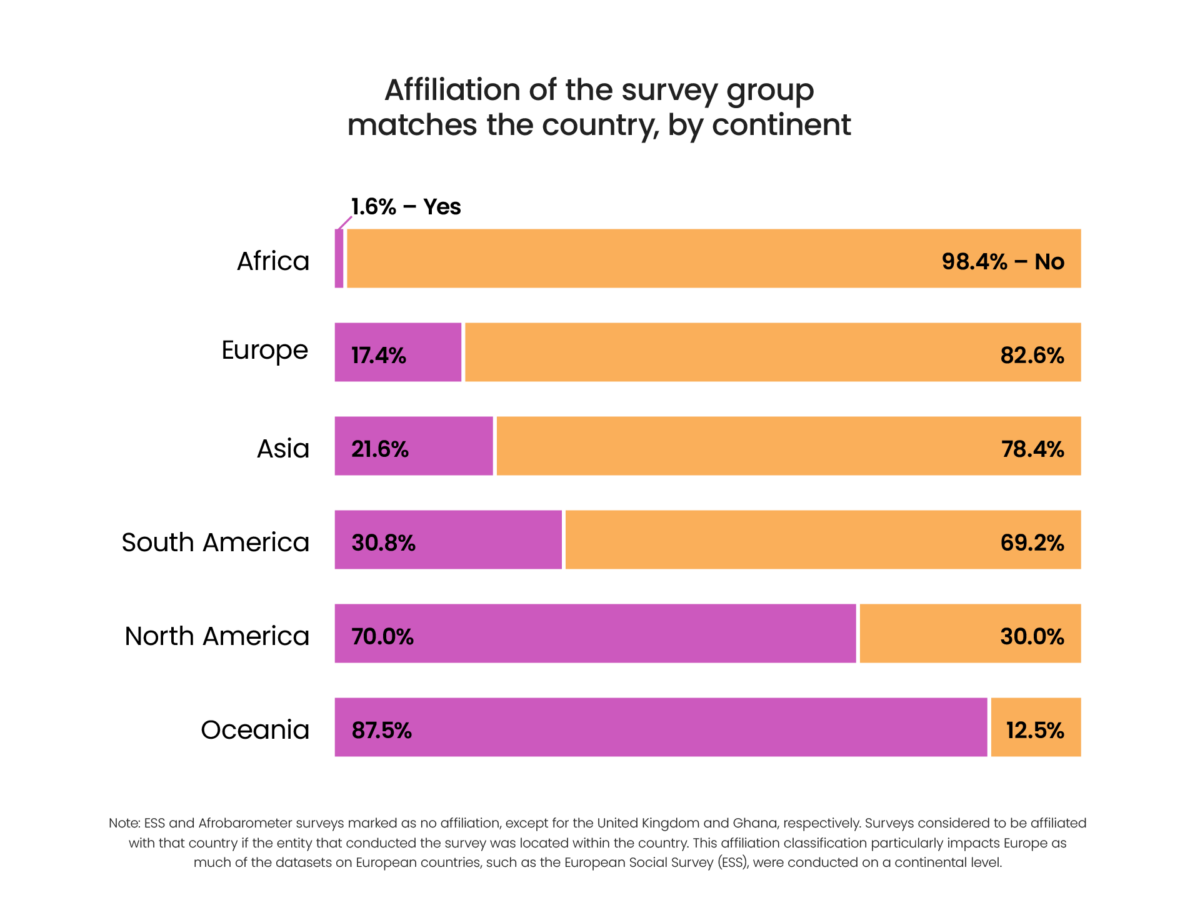
A third of global determinants of health datasets are not publicly accessible
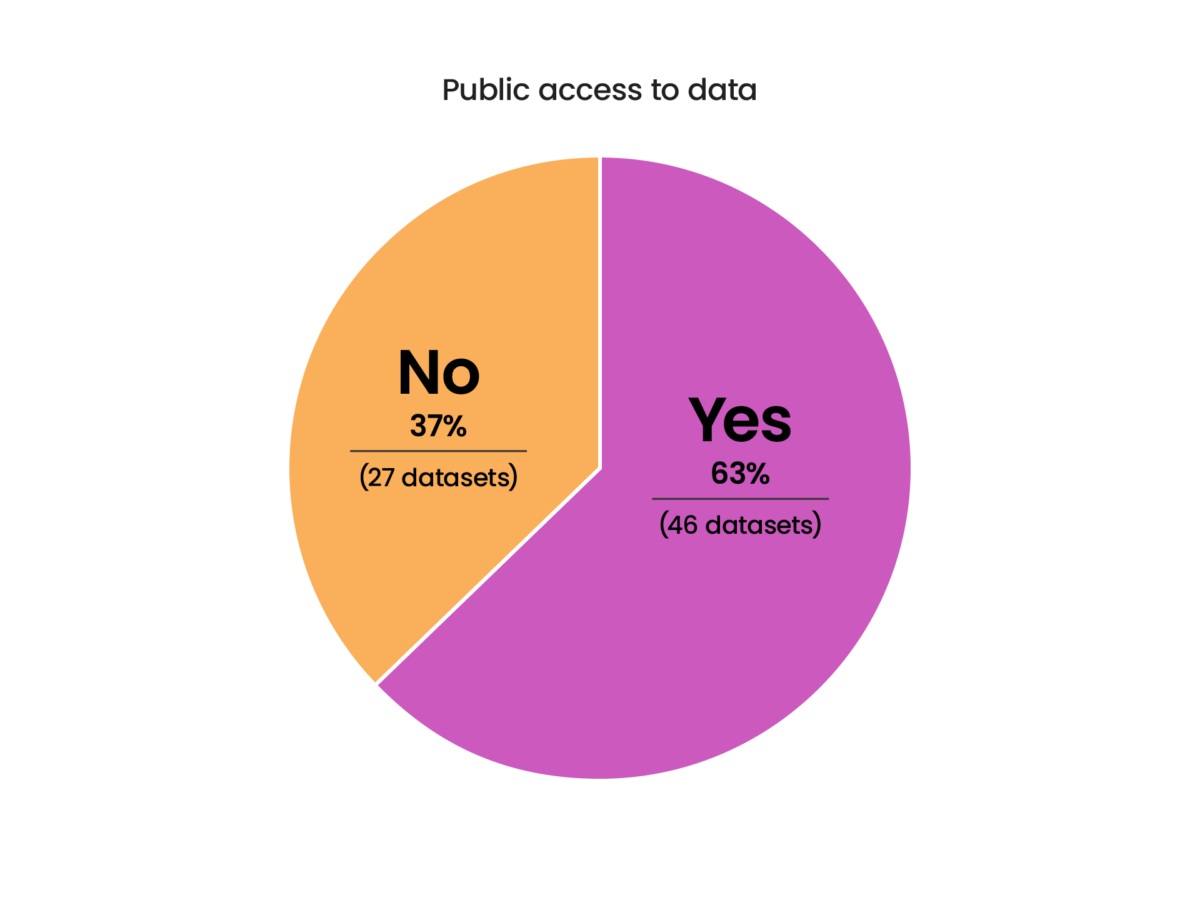
Less than half of datasets are linked to health outcomes
Datasets need to have stronger links to health outcomes for researchers to better understand the link between the determinants of health and the health of populations within specific regions.
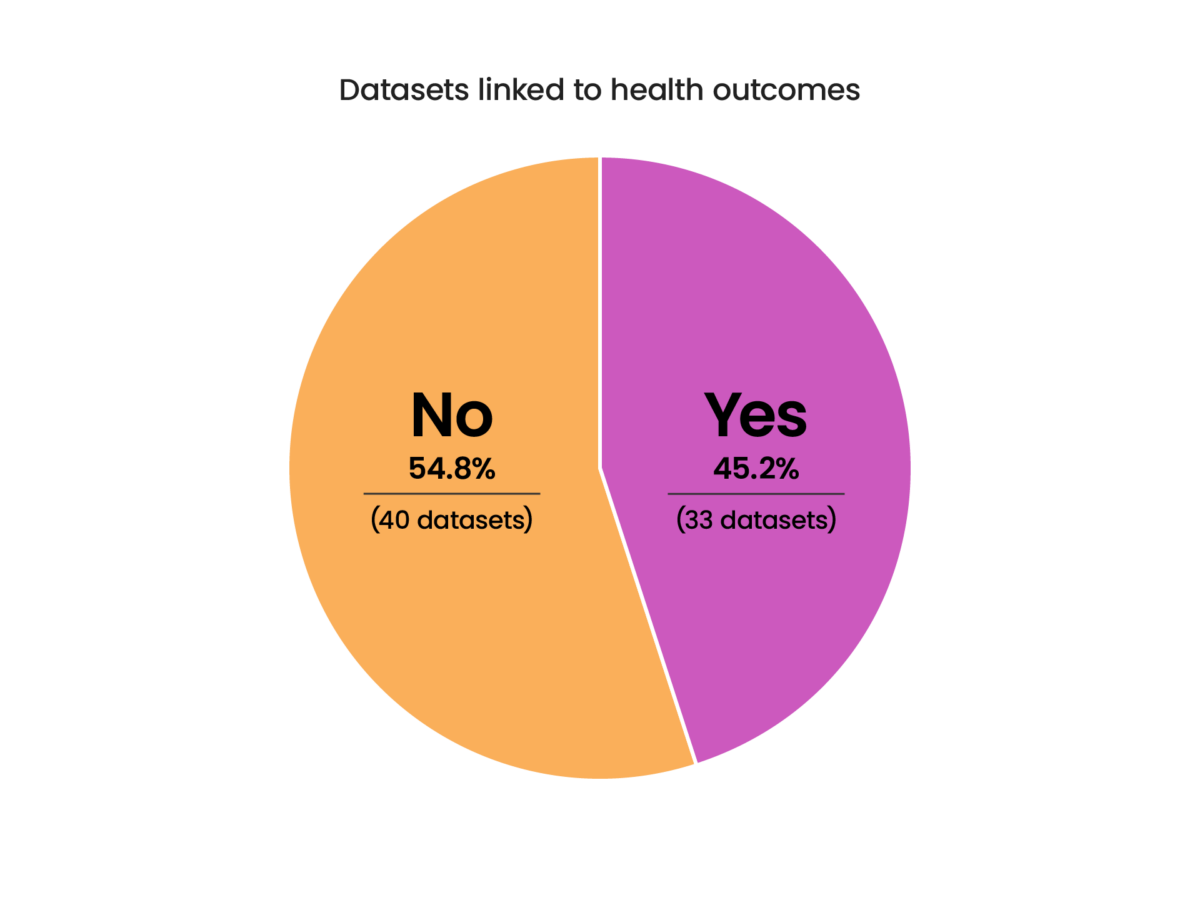
More consistency in the frequency of data collection is needed
66 datasets have one wave of data collection, while only 18 datasets have two waves and 13 have three waves. Only one dataset has longitudinal data collection. 59 datasets have a varying frequency of data collection.
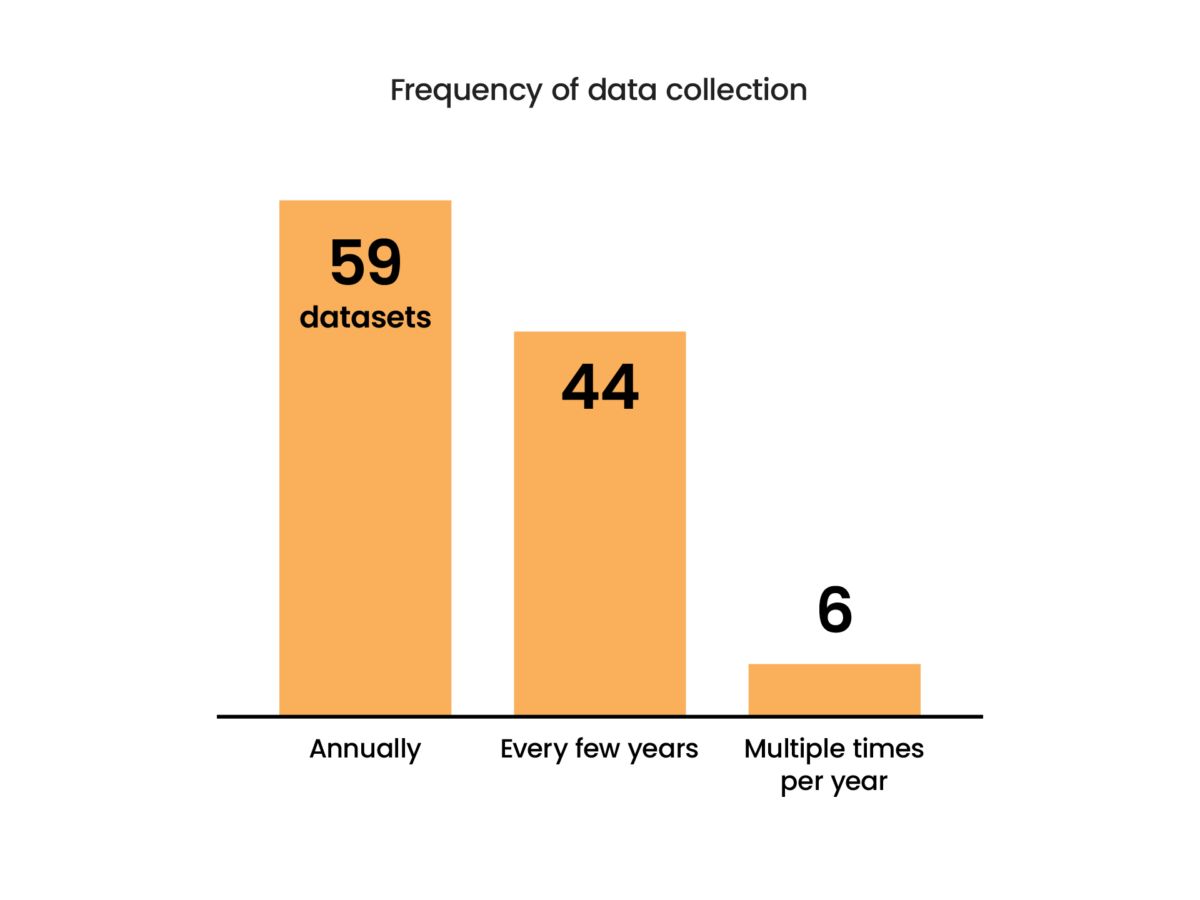
What are the top collected social determinants of health? A call to standardize our language usage
Without a consistent language amongst the researchers collecting data about the social determinants of health, it is difficult to accurately say which health determinants are the most and least researched.
